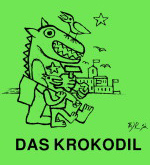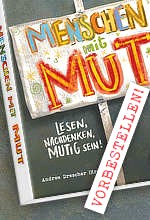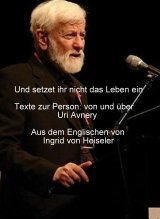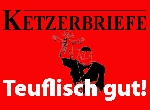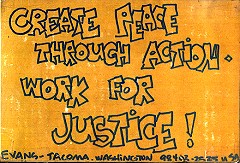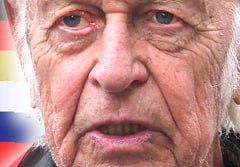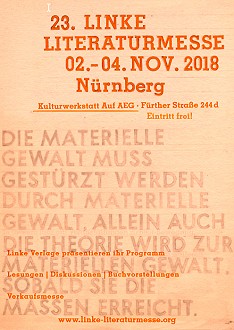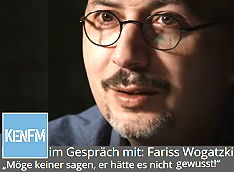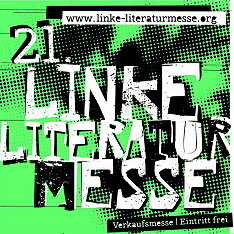SUCHE
Unabhängige Nachrichten, Berichte & Meinungen
Druckversion
Kultur und Wissen
In Memory of the Men of the German Resistance of July 20, 1944
The Reflex of Absolute Spiritual Obedience
By Rudolf Hänsel
July 20, 1944 has become a symbol of German resistance against the dictatorship of National Socialism and the reign of terror of Adolf Hitler. To commemorate the more than 200 executed victims of this most significant attempt to overthrow the military resistance is a commandment of humanity. The German political class also pays tribute to the heroes of the past with eloquence and reverence. However, it is not ashamed to discredit in the same breath the "heroes of the present" – men and women who courageously stood up against the totalitarian state and the "new normality" – as "conspiracy theorists" in collusion with the stupidly audacious “Journaille”. If in post-war Germany the causes of the so-called "cadaver obedience" had been thoroughly researched and parents and teachers had been appropriately enlightened and supported in their educational work, then today many more citizens would have the courage to use their own intellect (Kant) and act accordingly.
The unleashed pandemic of fear – and the fatal reaction of citizens
What is currently happening around the world has never been experienced by humanity before: A global network of ultra-rich and ultra-inhuman individuals as well as opaque international organizations, multinational corporations and dubious foundations, with their "ingenious" idea of a highly contagious virus, unleashed a pandemic of fear in the shortest possible time in order to achieve absolute spiritual obedience among people. This obedience reflex should enable them to finally enforce the long planned New World Order NWO. But we citizens are in the process of questioning and fathoming our reflex-like obedience reaction. With this act of "liberation" we will thwart the plans of the "world elite".
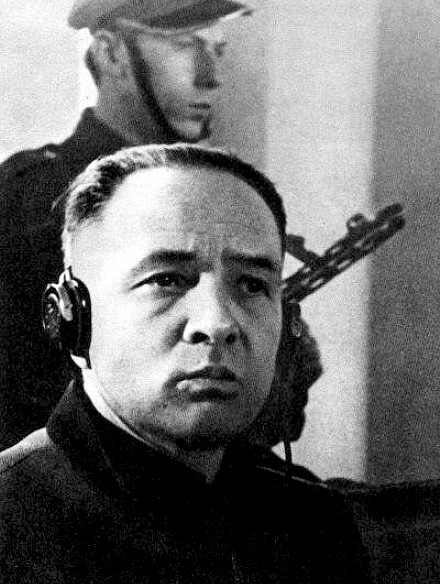
Rudolf Höß, commandant of concentration camp Auschwitz (photograph: public domain)
If we want to understand our fatal obedience reflex to some extent, we should study the autobiographical notes of Rudolf Höß, the former commander of Auschwitz. They are an excellent psychological illustrative material for this problem. (1) In his childhood Höß underwent an upbringing according to strictly religious and military principles and therefore as an adult he reacted with unrestricted obedience. However, since politicians of all stripes and their "superior whisperers" prefer obedient subjects, this problem was never thoroughly researched and worked through.
"Cadaver obedience" – a Jesuit word creation and way of thinking
Ignatius of Loyola, the founder of the Jesuit order, wrote an illuminating text in the middle of the 16th century, to which the German word "Kadavergehorsam" is derived. In the version translated from Spanish into Latin and published by the Congregation of the Order in 1558 it read:
Long time before Ignatius of Loyola Francis of Assisi (1181/82 - 1226) had already had the perfect and highest form of obedience (perfecta et summa obedientia) towards the superior compared with a dead, lifeless body (corpus mortuum, corpus exanime), which can be taken where one wants without resistance and without grumbling. (3)
Auschwitz Commandant Rudolf Höß – "the one who was brought up in cadaveric obedience"
The handwritten notes of Rudolf Höß "Meine Psyche. Werden, Leben und Vorleben" – written down during his remand in custody in Krakow in 1946 – give the reader a deep insight into the abysses of human behaviour. The editor of the autobiography, Martin Broszat, writes in the introduction of the book (4):
Rudolf Höß had been inspired by "robot-like performance of duty" to serve in the concentration camp and someone who asserted himself ruthlessly, did not shy away from any order, but remained personally "decent". (p. 20f.) He had been the one who had been educated in cadaver obedience, who had let himself be persuaded by his superiors in training courses of many years that the liquidation of hundreds of thousands of people or the eradication of "racial-biological foreign bodies and pests of the people" was a service for the people and the fatherland or a necessary act of nationalistic "pest control". (p. 22)
Höß himself writes in his notes: The SS-man must be a "devout fanatic" of the ideology of National Socialism and believe in Adolf Hitler: "Only through fanatics who are willing to give up their ego completely for the idea, can a worldview be sustained and held in perpetuity." (p. 114)
When Heinrich Himmler, Reichsführer der Schutzstaffel (SS), gave Höß the order in 1941 "to prepare a place for mass extermination in Auschwitz and to carry out this extermination", Höß reacted in the same way as he had learned it from his father in the nursery: "I did not give it any thought at that time – I had received the order – and had to carry it out. Whether this mass extermination of the Jews was necessary or not, I could not allow myself to judge that, I could not see that far: If the Führer himself had ordered the 'Final Solution of the Jewish Question', there were no considerations for a National Socialist, even less for a SS-Führer. 'Führer befiel, wir folgen' – was by no means a phrase, not a slogan for us. It was meant to be bitterly serious." (p. 186)
When he was repeatedly told after his arrest that he could have refused this order or "shoot Himmler over the head", Rudolf Höß contradicted him and said: "His person as RFSS (Reichsführer der SS) was untouchable. His basic orders in the name of the Führer were sacred. There were no considerations, no interpretations, no interpretations. They were carried out to the last consequence, even if it was through conscious dedication of life, as many SS leaders did during the war.” (p. 187) That was the power of education. And Rudolf Höß was not an isolated case.
Höß felt the atmosphere in his parents' house to be deeply religious. His father had been a fanatical Catholic, who had made the vow to educate his son to become a clergyman through great rigour. (pp. 33) Due to his religious conviction, the father had been a resolute opponent of the Imperial Government and its policies, but was nevertheless of the opinion that "despite all opposition, the laws and orders of the state were to be obeyed unconditionally". (p. 35)
Now, it is a finding of scientific psychology that we humans in later life have, by and large, only what we learned from the educators during our childhood. For Höss these were religious and military "virtues" such as blind obedience, the fulfilment of duties and not questioning "higher" orders, as well as the ability to settle problems with oneself and not to show any feelings.
An education according to strictly military principles
On the question of education, Rudolf Höß himself said: "I was educated by my father according to strict military principles." (p. 33) These educational principles – he was convinced of this – had become second nature to him: Wishes or orders of parents, teachers, pastors had to be carried out or followed by little Rudolf without delay; what the adults said was always correct and could not be questioned; all orders of the parents had to be carried out exactly and conscientiously, the orders and wishes of the father had to be followed meticulously. (p. 34f.) At the beginning of the last century this barrack yard education was a common educational practice that demanded absolute obedience from the child and was to prepare him for the later profession of soldier.
Such an authoritarian upbringing makes it impossible for the child to develop genuine parental love and trust (basic trust) in its fellow human beings. Instead, it isolates itself inwardly and remains alone with its worries. This is probably what happened to Höß as well, as he wrote: "Although both parents were very fond of me, I could never find my way to them in all the big and small sorrows that a boy's heart sometimes feels. I made this all up with myself. My only confidant was my Hans (pony) – and he understood me, in my opinion." (p. 36)
Even though he respected his parents very much and looked up to them with reverence, he did not have any real parental love for them. From his earliest youth on, therefore, he always rejected any proof of tenderness – much to his mother's regret. (p. 35) He became a loner and animal lover. In contrast, Höß describes his two older sisters as "very cuddly and always around their mother". However, these sisters had always remained strangers to him, he could never have had a warmer feeling for them. (p. 36)
Hannah Arendt on the "bureaucratic cadaver obedience" of Adolf Eichmann
Adolf Eichmann, like Rudolf Höß, was one of the greatest criminals of his time and, like him, "frighteningly normal". The political theorist and writer Hannah Arendt came to the conclusion in her report on the 1961 Jerusalem trial of Eichmann (5) that "Eichmann's decisive motive, apart from personal ambition, lay in a misguided performance of duty and bureaucratic cadaver obedience.” (p. 25) The genocide of the Nazis was therefore for her an "administrative mass murder". (p. 58)
Eichmann himself writes in his curriculum vitae – similar to Höß: "From my own home I knew no hatred against Jews, for the whole education by my mother and father was strictly Christian." (p. 104) Only one thing would have given him a bad conscience: if he had not obeyed the orders and had not transported millions of men, women and children to their deaths with untiring zeal and the most painstaking care. (p. 98)
Hanna Arendt commented: "The disturbing thing about Eichmann was that he was like many others and that these many were and are neither perverse nor sadistic, but horribly and frighteningly normal. From the point of view of our legal institutions and measured by our moral standards of judgement, this normality was much more frightening than all the horrors put together..." (6) After the publication of her book in 1964, the German-American
professor of the Jewish faith – mainly on the initiative of Jewish organizations – launched a devastating journalistic campaign, which in her opinion aimed at muzzling her. (p. 33)
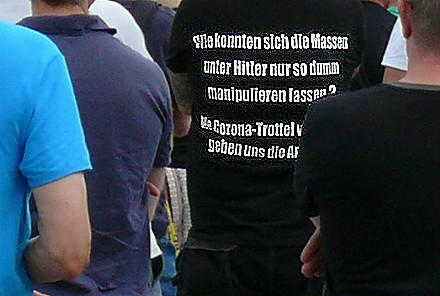
"How could the masses under Hitler be so stupidly manipulated? The Corona fools of today will give us the answer!", Demonstration "Querdenken 621" (Transversal Thinking 621) for the defence of fundamental rights, Mannheim/Germany, 18 July 2020
Without need we follow orders from "above" and can't say “No!”.
From the past back to the present: Even today, due to strictly religious and/or authoritarian upbringing, most of us react to orders or "instructions" from above with a reflex of obedience and cannot say "No!", "No, I'm not going to war, I'm not leaving my wife and my children behind alone!" or "No, I'm not going to carry out these inhuman or absurd orders!” The frightening reflex of obedience that most fellow citizens have shown for months is an eloquent testimony.
Should contemporaries believe that family and school education is no longer religious and authoritarian nowadays, it is a superficial and unpsychological personal assessment. Even today, the religiously derived principle of unrestricted spiritual obedience still prevails in our families and schools – even if parents and teachers appear liberal and open to the world.
Through this education our emotional life is restricted: We "must" obey and cannot say "No!" Just as we had to follow in nursery and school, we also follow as adults. For education, the question therefore arises as to which values and virtues we should impart to our children so that they learn to feel and act in a humane way, in order to break the vicious circle of violence and give up blind obedience.
Role models could be the already mentioned resistance fighters of July 20, 1944, or the Protestant pastor and resistance fighter Dietrich Bonhoeffer, who was executed by the Nazis on April 9, 1945. Just two days after Hitler came to power in 1933, he warned in a radio speech that the "Führer" could become a "seducer". In April 1933, under the impression of the beginning persecution of Jews, he considered the possibility of "not only connecting the victims under the wheel, but falling into the spokes of the wheel itself". (7) As we know, he did it too.
Footnotes:
(1) Broszat, Martin (eds.) (1994, 14th edition). Commander in Auschwitz. Autobiographical notes of Rudolf Höß. Munich. In the following I refer to an article published on 22.04.2015 in NRhZ Online No. 507 "Psyche of Commander Rudolf Höß" and take over essential passages from it.
(2) https://de.wikipedia.org./wiki/Kadavergehorsam
(3) https://de.wikipedia.org./wiki/Kadavergehorsam
(4) Broszat, Martin (eds.) (1994, 14th edition). Commander in Auschwitz. Autobiographical notes of Rudolf Höß. Munich.
(5) Arendt, Hanna (2013, 8th edition). Eichmann in Jerusalem. An account of the banality of evil. Munich. (See also film "Hannah Arendt. Her thinking changed the world")
(6) Arendt, Hanna (2013, 8th edition). Eichmann in Jerusalem. An account of the banality of evil. Munich, text book cover.
(7) https://www.dietrich-bonhoeffer.net
Dr. Rudolf Hänsel is a graduate psychologist and educationalist.
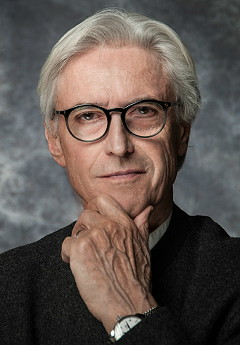
This article in German language:
Zum Gedenken an die Männer des deutschen Widerstands vom 20. Juli 1944
Der Reflex des absoluten geistigen Gehorsams
Von Rudolf Hänsel
NRhZ 749 vom 20.07.2020
http://www.nrhz.de/flyer/beitrag.php?id=26921
See also:
The Cerberus of the New World Order and their diabolical agenda
We got to know you and are not afraid of you (anymore)!
By Rudolf Hänsel
NRhZ 749 vom 15.07.2020
http://www.nrhz.de/flyer/beitrag.php?id=26916
Wake up, Damned of this Earth!
The New World Order (NWO) Will be a Satanic One (SWO)
By Rudolf Hänsel
NRhZ 748 vom 01.07.2020
http://www.nrhz.de/flyer/beitrag.php?id=26891
The Davos Reset 2021 Agenda of the World Economic Forum. A New Phase of Economic and Social Destruction?
"The Great Reset" - Curse or Blessing?
By Rudolf Hänsel
NRhZ 747 vom 17.06.2020
http://www.nrhz.de/flyer/beitrag.php?id=26869
ARTIKELÜBERSICHT Corona-Manöver
Allen Spins und Hintergründen nachspüren
Von NRhZ-AutorInnen
http://www.nrhz.de/flyer/beitrag.php?id=26721
Online-Flyer Nr. 749 vom 20.07.2020
Druckversion
Kultur und Wissen
In Memory of the Men of the German Resistance of July 20, 1944
The Reflex of Absolute Spiritual Obedience
By Rudolf Hänsel
July 20, 1944 has become a symbol of German resistance against the dictatorship of National Socialism and the reign of terror of Adolf Hitler. To commemorate the more than 200 executed victims of this most significant attempt to overthrow the military resistance is a commandment of humanity. The German political class also pays tribute to the heroes of the past with eloquence and reverence. However, it is not ashamed to discredit in the same breath the "heroes of the present" – men and women who courageously stood up against the totalitarian state and the "new normality" – as "conspiracy theorists" in collusion with the stupidly audacious “Journaille”. If in post-war Germany the causes of the so-called "cadaver obedience" had been thoroughly researched and parents and teachers had been appropriately enlightened and supported in their educational work, then today many more citizens would have the courage to use their own intellect (Kant) and act accordingly.
The unleashed pandemic of fear – and the fatal reaction of citizens
What is currently happening around the world has never been experienced by humanity before: A global network of ultra-rich and ultra-inhuman individuals as well as opaque international organizations, multinational corporations and dubious foundations, with their "ingenious" idea of a highly contagious virus, unleashed a pandemic of fear in the shortest possible time in order to achieve absolute spiritual obedience among people. This obedience reflex should enable them to finally enforce the long planned New World Order NWO. But we citizens are in the process of questioning and fathoming our reflex-like obedience reaction. With this act of "liberation" we will thwart the plans of the "world elite".

Rudolf Höß, commandant of concentration camp Auschwitz (photograph: public domain)
If we want to understand our fatal obedience reflex to some extent, we should study the autobiographical notes of Rudolf Höß, the former commander of Auschwitz. They are an excellent psychological illustrative material for this problem. (1) In his childhood Höß underwent an upbringing according to strictly religious and military principles and therefore as an adult he reacted with unrestricted obedience. However, since politicians of all stripes and their "superior whisperers" prefer obedient subjects, this problem was never thoroughly researched and worked through.
"Cadaver obedience" – a Jesuit word creation and way of thinking
Ignatius of Loyola, the founder of the Jesuit order, wrote an illuminating text in the middle of the 16th century, to which the German word "Kadavergehorsam" is derived. In the version translated from Spanish into Latin and published by the Congregation of the Order in 1558 it read:
- „Et sibi quisque persuadeat, quòd qui sub Obedientia vivunt, se ferri ac regi a divina Providentia per Superiores suos sinere debent perinde, ac si cadaver essent, quod quoquoversus ferri, et quacunque ratione tractari se sinit; vel similiter, atque senis baculus, qui, ubiqunque, et quaqunque in re velit eo uti, qui eum manu tenet, ei inservit.“
"We should be aware that each one of those who live in obedience must be guided and directed by Divine Providence through the Superior, as if he were a dead body that can be taken anywhere and treated in any way, or like an old man's staff that serves wherever and for whatever purpose he wants to use it. (2)
Long time before Ignatius of Loyola Francis of Assisi (1181/82 - 1226) had already had the perfect and highest form of obedience (perfecta et summa obedientia) towards the superior compared with a dead, lifeless body (corpus mortuum, corpus exanime), which can be taken where one wants without resistance and without grumbling. (3)
Auschwitz Commandant Rudolf Höß – "the one who was brought up in cadaveric obedience"
The handwritten notes of Rudolf Höß "Meine Psyche. Werden, Leben und Vorleben" – written down during his remand in custody in Krakow in 1946 – give the reader a deep insight into the abysses of human behaviour. The editor of the autobiography, Martin Broszat, writes in the introduction of the book (4):
- "The 'ideal' commanders of the concentration camps in the sense of National Socialism were ultimately not the personally brutal, dissolute and run-down creatures in the SS, but Höß and his ilk. Their 'self-sacrificing devotion' to service in the concentration camp and their never resting activity made the camp system functional; thanks to their 'conscientiousness' they could appear as an institution of order and education, which was an instrument of terror. And they were the most suitable execution officers of that form of hygienic mass murder, which allowed thousands of people to be killed without having the feeling of murder.” (p. 21)
Rudolf Höß had been inspired by "robot-like performance of duty" to serve in the concentration camp and someone who asserted himself ruthlessly, did not shy away from any order, but remained personally "decent". (p. 20f.) He had been the one who had been educated in cadaver obedience, who had let himself be persuaded by his superiors in training courses of many years that the liquidation of hundreds of thousands of people or the eradication of "racial-biological foreign bodies and pests of the people" was a service for the people and the fatherland or a necessary act of nationalistic "pest control". (p. 22)
Höß himself writes in his notes: The SS-man must be a "devout fanatic" of the ideology of National Socialism and believe in Adolf Hitler: "Only through fanatics who are willing to give up their ego completely for the idea, can a worldview be sustained and held in perpetuity." (p. 114)
When Heinrich Himmler, Reichsführer der Schutzstaffel (SS), gave Höß the order in 1941 "to prepare a place for mass extermination in Auschwitz and to carry out this extermination", Höß reacted in the same way as he had learned it from his father in the nursery: "I did not give it any thought at that time – I had received the order – and had to carry it out. Whether this mass extermination of the Jews was necessary or not, I could not allow myself to judge that, I could not see that far: If the Führer himself had ordered the 'Final Solution of the Jewish Question', there were no considerations for a National Socialist, even less for a SS-Führer. 'Führer befiel, wir folgen' – was by no means a phrase, not a slogan for us. It was meant to be bitterly serious." (p. 186)
When he was repeatedly told after his arrest that he could have refused this order or "shoot Himmler over the head", Rudolf Höß contradicted him and said: "His person as RFSS (Reichsführer der SS) was untouchable. His basic orders in the name of the Führer were sacred. There were no considerations, no interpretations, no interpretations. They were carried out to the last consequence, even if it was through conscious dedication of life, as many SS leaders did during the war.” (p. 187) That was the power of education. And Rudolf Höß was not an isolated case.
Höß felt the atmosphere in his parents' house to be deeply religious. His father had been a fanatical Catholic, who had made the vow to educate his son to become a clergyman through great rigour. (pp. 33) Due to his religious conviction, the father had been a resolute opponent of the Imperial Government and its policies, but was nevertheless of the opinion that "despite all opposition, the laws and orders of the state were to be obeyed unconditionally". (p. 35)
Now, it is a finding of scientific psychology that we humans in later life have, by and large, only what we learned from the educators during our childhood. For Höss these were religious and military "virtues" such as blind obedience, the fulfilment of duties and not questioning "higher" orders, as well as the ability to settle problems with oneself and not to show any feelings.
An education according to strictly military principles
On the question of education, Rudolf Höß himself said: "I was educated by my father according to strict military principles." (p. 33) These educational principles – he was convinced of this – had become second nature to him: Wishes or orders of parents, teachers, pastors had to be carried out or followed by little Rudolf without delay; what the adults said was always correct and could not be questioned; all orders of the parents had to be carried out exactly and conscientiously, the orders and wishes of the father had to be followed meticulously. (p. 34f.) At the beginning of the last century this barrack yard education was a common educational practice that demanded absolute obedience from the child and was to prepare him for the later profession of soldier.
Such an authoritarian upbringing makes it impossible for the child to develop genuine parental love and trust (basic trust) in its fellow human beings. Instead, it isolates itself inwardly and remains alone with its worries. This is probably what happened to Höß as well, as he wrote: "Although both parents were very fond of me, I could never find my way to them in all the big and small sorrows that a boy's heart sometimes feels. I made this all up with myself. My only confidant was my Hans (pony) – and he understood me, in my opinion." (p. 36)
Even though he respected his parents very much and looked up to them with reverence, he did not have any real parental love for them. From his earliest youth on, therefore, he always rejected any proof of tenderness – much to his mother's regret. (p. 35) He became a loner and animal lover. In contrast, Höß describes his two older sisters as "very cuddly and always around their mother". However, these sisters had always remained strangers to him, he could never have had a warmer feeling for them. (p. 36)
Hannah Arendt on the "bureaucratic cadaver obedience" of Adolf Eichmann
Adolf Eichmann, like Rudolf Höß, was one of the greatest criminals of his time and, like him, "frighteningly normal". The political theorist and writer Hannah Arendt came to the conclusion in her report on the 1961 Jerusalem trial of Eichmann (5) that "Eichmann's decisive motive, apart from personal ambition, lay in a misguided performance of duty and bureaucratic cadaver obedience.” (p. 25) The genocide of the Nazis was therefore for her an "administrative mass murder". (p. 58)
Eichmann himself writes in his curriculum vitae – similar to Höß: "From my own home I knew no hatred against Jews, for the whole education by my mother and father was strictly Christian." (p. 104) Only one thing would have given him a bad conscience: if he had not obeyed the orders and had not transported millions of men, women and children to their deaths with untiring zeal and the most painstaking care. (p. 98)
Hanna Arendt commented: "The disturbing thing about Eichmann was that he was like many others and that these many were and are neither perverse nor sadistic, but horribly and frighteningly normal. From the point of view of our legal institutions and measured by our moral standards of judgement, this normality was much more frightening than all the horrors put together..." (6) After the publication of her book in 1964, the German-American
professor of the Jewish faith – mainly on the initiative of Jewish organizations – launched a devastating journalistic campaign, which in her opinion aimed at muzzling her. (p. 33)

"How could the masses under Hitler be so stupidly manipulated? The Corona fools of today will give us the answer!", Demonstration "Querdenken 621" (Transversal Thinking 621) for the defence of fundamental rights, Mannheim/Germany, 18 July 2020
Without need we follow orders from "above" and can't say “No!”.
From the past back to the present: Even today, due to strictly religious and/or authoritarian upbringing, most of us react to orders or "instructions" from above with a reflex of obedience and cannot say "No!", "No, I'm not going to war, I'm not leaving my wife and my children behind alone!" or "No, I'm not going to carry out these inhuman or absurd orders!” The frightening reflex of obedience that most fellow citizens have shown for months is an eloquent testimony.
Should contemporaries believe that family and school education is no longer religious and authoritarian nowadays, it is a superficial and unpsychological personal assessment. Even today, the religiously derived principle of unrestricted spiritual obedience still prevails in our families and schools – even if parents and teachers appear liberal and open to the world.
Through this education our emotional life is restricted: We "must" obey and cannot say "No!" Just as we had to follow in nursery and school, we also follow as adults. For education, the question therefore arises as to which values and virtues we should impart to our children so that they learn to feel and act in a humane way, in order to break the vicious circle of violence and give up blind obedience.
Role models could be the already mentioned resistance fighters of July 20, 1944, or the Protestant pastor and resistance fighter Dietrich Bonhoeffer, who was executed by the Nazis on April 9, 1945. Just two days after Hitler came to power in 1933, he warned in a radio speech that the "Führer" could become a "seducer". In April 1933, under the impression of the beginning persecution of Jews, he considered the possibility of "not only connecting the victims under the wheel, but falling into the spokes of the wheel itself". (7) As we know, he did it too.
Footnotes:
(1) Broszat, Martin (eds.) (1994, 14th edition). Commander in Auschwitz. Autobiographical notes of Rudolf Höß. Munich. In the following I refer to an article published on 22.04.2015 in NRhZ Online No. 507 "Psyche of Commander Rudolf Höß" and take over essential passages from it.
(2) https://de.wikipedia.org./wiki/Kadavergehorsam
(3) https://de.wikipedia.org./wiki/Kadavergehorsam
(4) Broszat, Martin (eds.) (1994, 14th edition). Commander in Auschwitz. Autobiographical notes of Rudolf Höß. Munich.
(5) Arendt, Hanna (2013, 8th edition). Eichmann in Jerusalem. An account of the banality of evil. Munich. (See also film "Hannah Arendt. Her thinking changed the world")
(6) Arendt, Hanna (2013, 8th edition). Eichmann in Jerusalem. An account of the banality of evil. Munich, text book cover.
(7) https://www.dietrich-bonhoeffer.net
Dr. Rudolf Hänsel is a graduate psychologist and educationalist.

This article in German language:
Zum Gedenken an die Männer des deutschen Widerstands vom 20. Juli 1944
Der Reflex des absoluten geistigen Gehorsams
Von Rudolf Hänsel
NRhZ 749 vom 20.07.2020
http://www.nrhz.de/flyer/beitrag.php?id=26921
See also:
The Cerberus of the New World Order and their diabolical agenda
We got to know you and are not afraid of you (anymore)!
By Rudolf Hänsel
NRhZ 749 vom 15.07.2020
http://www.nrhz.de/flyer/beitrag.php?id=26916
Wake up, Damned of this Earth!
The New World Order (NWO) Will be a Satanic One (SWO)
By Rudolf Hänsel
NRhZ 748 vom 01.07.2020
http://www.nrhz.de/flyer/beitrag.php?id=26891
The Davos Reset 2021 Agenda of the World Economic Forum. A New Phase of Economic and Social Destruction?
"The Great Reset" - Curse or Blessing?
By Rudolf Hänsel
NRhZ 747 vom 17.06.2020
http://www.nrhz.de/flyer/beitrag.php?id=26869
ARTIKELÜBERSICHT Corona-Manöver
Allen Spins und Hintergründen nachspüren
Von NRhZ-AutorInnen
http://www.nrhz.de/flyer/beitrag.php?id=26721
Online-Flyer Nr. 749 vom 20.07.2020
Druckversion
NEWS
KÖLNER KLAGEMAUER
FILMCLIP
FOTOGALERIE






